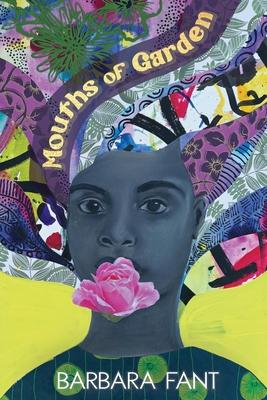In Mouths of Garden, there is a distinct sense of both suffocation and symphony, as Barbara Fant describes resiliency, especially of Black people continuing to uplift communities ravaged by racism, illness, domestic abuse, police brutality, and toxic omission. A deep spatial awareness presents itself in Fant's work, as bodies mold to the shape of caskets, bullets, fossilized homes, and screams suffocate in the violence often ignored by surrounding eyes. Yet, by tracing the steadfast throats and backbones of Black women working to uproot the paralyzing scenes of missing Black girls and targeted Black boys, Fant's language is a reflective, echoing choir calling to transform the inexcusable stagnation in America's attempts to address longstanding discrimination. As the speaker recalls a long lineage of aunts, sisters, grandmothers, and mothers who have harnessed the power of a church piano or produced the tenderness of newly braided hair, she slowly discovers a potency blooming from the movements of her own body as she writes, "I found myself in a braid / crawled out of my own casket / made my way inside a mouth, / and grew another part of my body." Fant's poetry cultivates a garden where Black voices pry away the stale American soil to reclaim the sprouts of open mouths and honest words buried beneath.

In Mouths of Garden, there is a distinct sense of both suffocation and symphony, as Barbara Fant describes resiliency, especially of Black people continuing to uplift communities ravaged by racism, illness, domestic abuse, police brutality, and toxic omission. A deep spatial awareness presents itself in Fant's work, as bodies mold to the shape of caskets, bullets, fossilized homes, and screams suffocate in the violence often ignored by surrounding eyes. Yet, by tracing the steadfast throats and backbones of Black women working to uproot the paralyzing scenes of missing Black girls and targeted Black boys, Fant's language is a reflective, echoing choir calling to transform the inexcusable stagnation in America's attempts to address longstanding discrimination. As the speaker recalls a long lineage of aunts, sisters, grandmothers, and mothers who have harnessed the power of a church piano or produced the tenderness of newly braided hair, she slowly discovers a potency blooming from the movements of her own body as she writes, "I found myself in a braid / crawled out of my own casket / made my way inside a mouth, / and grew another part of my body." Fant's poetry cultivates a garden where Black voices pry away the stale American soil to reclaim the sprouts of open mouths and honest words buried beneath.